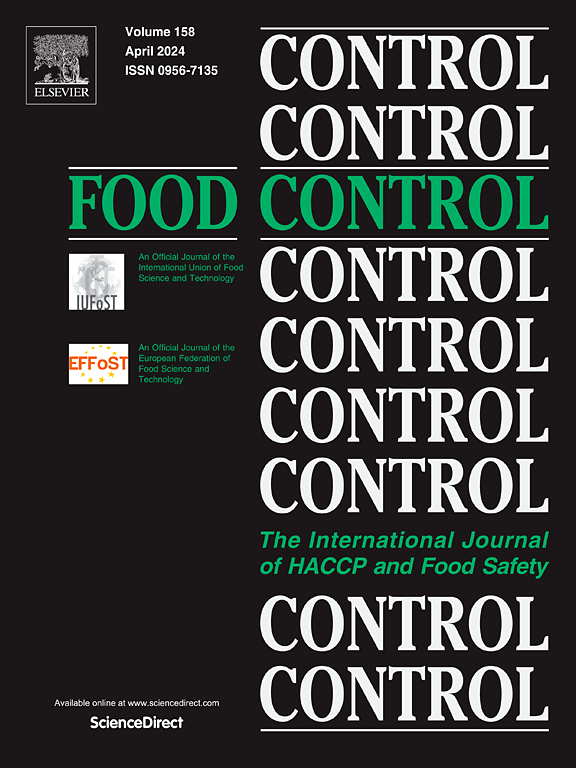Developing sodium alginate based edible film incorporated with potassium sorbate and application for fresh cold pork preservation
IF 5.6
1区 农林科学
Q1 FOOD SCIENCE & TECHNOLOGY
引用次数: 0
Abstract
Cold-stored fresh pork is widely consumed worldwide, whereas quality deterioration and spoilage limit its shelf-life and commercial value. The present study aims to develop a sodium alginate-based edible film incorporated with varying concentrations of potassium sorbate (PS) ranging from 0% to 5%, using 4% glycerol as a plasticizer. The optimal concentration of PS was determined to be 3% based on a comprehensive characterization of the film's optical, mechanical, and antimicrobial properties. The edible film containing 3% PS in a 2% sodium alginate substrate exhibited a uniform surface and well-arranged microstructure, with the film thickness of 0.43 mm, tensile strength (TS) of 7.11 MPa, elongation at break (EB) of 75.5%, and Water vapor permeability (WVP) of 1.33 g‧mm‧m−2‧h−1‧kPa−1. This formulation demonstrated superior tensile strength, elongation at break, and appropriate water vapor permeability. The preservation efficacy of the developed PS edible film on fresh pork was evaluated in comparison to PS solution spraying and dipping approaches. The results indicated that the PS edible film most effectively maintained the appearance, sensory attributes, and physiological quality of fresh pork during cold storage at 4 °C for 14 d. On the 14 d, the total volatile basic nitrogen (TVB-N) content was as low as 2.38 mg‧100 g⁻1, the thiobarbituric acid reactive substances (TBARS) content was 0.63 mg‧kg⁻1, the total viable count (TVC) was 5.12 log cfu‧g⁻1, and the total count of molds and yeasts was 5.05 log cfu‧g⁻1, which were significantly lower than those observed in the spraying and dipping treatments. These findings support the use of the PS edible film as an effective antimicrobial packaging solution, offering significant potential for preserving the quality of cold-stored fresh pork and extending its shelf life.
求助全文
约1分钟内获得全文
求助全文
来源期刊

Food Control
工程技术-食品科技
CiteScore
12.20
自引率
6.70%
发文量
758
审稿时长
33 days
期刊介绍:
Food Control is an international journal that provides essential information for those involved in food safety and process control.
Food Control covers the below areas that relate to food process control or to food safety of human foods:
• Microbial food safety and antimicrobial systems
• Mycotoxins
• Hazard analysis, HACCP and food safety objectives
• Risk assessment, including microbial and chemical hazards
• Quality assurance
• Good manufacturing practices
• Food process systems design and control
• Food Packaging technology and materials in contact with foods
• Rapid methods of analysis and detection, including sensor technology
• Codes of practice, legislation and international harmonization
• Consumer issues
• Education, training and research needs.
The scope of Food Control is comprehensive and includes original research papers, authoritative reviews, short communications, comment articles that report on new developments in food control, and position papers.
 求助内容:
求助内容: 应助结果提醒方式:
应助结果提醒方式:


